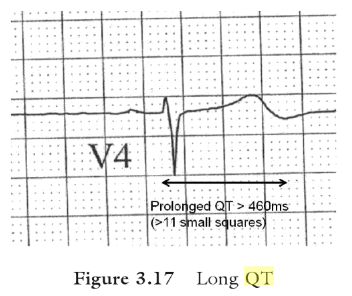Normal QT Interval Duration: 0.3-0.44 s (0.46 s for women); tends to increase as the heart rate decreases Bazett’s formula for corrected QT interval (QTc): QTc = QT/ √RR Prolonged QT Interval Duration: >0.44 s (men) and >0.46 s (women) Can lead to: Polymorphic VT (Torsades de pointes) Causes: Mnemonic:…
Tag: ECG
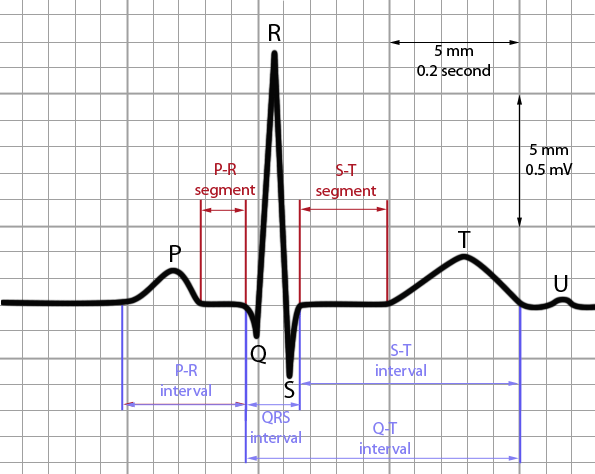
ECG Guide for Surgeons
There is an old saying that two surgeons and an ECG form a double-blind-study. Then, there’s a protocol for surgeons intended for humor: All spikes up: Operate All spikes down: Call Medics All spikes missing: Recently: Call Anesthetist A long time ago: Complete death certificate So, let’s think of heart…
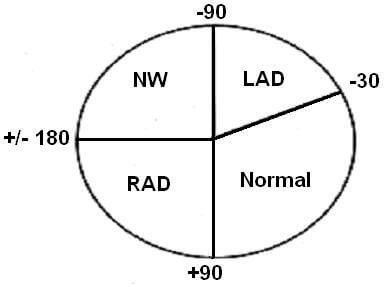
ECG Axis Determination : Mnemonic
Lead I = left (0 degrees)Lead aVF = floor (90 degrees) Lead I +ve and Lead aVF +ve = Between 0-90 degrees (Normal axis) Lead I -ve and Lead aVF +ve = Between 90-180 degrees (Right axis deviation) Lead I +ve and Lead aVF -ve = Between 0 to -90…
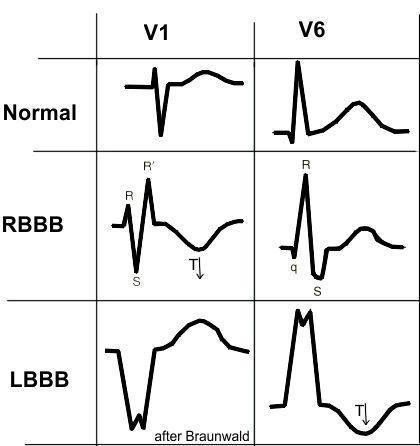
Bundle Branch Block : Mnemonic
If the QRS complex is wide (>0.12 s/>3 small squares), the ventricular activity may be arising from the ventricle conducting system. caused by a ‘bundle branch block’. WiLLiaM MaRRoW (classic mnemonic) Wi – V1LL – LBBBM – V6 M – V1RR – RBBBW – V6 ViLLheiM MaRRooN (more accurate) V…
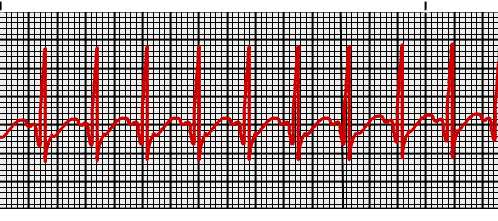
Supraventricular Tachycardia vs Sinus Tachycardia
Yesterday, I had encountered a tachycardic patient with heart rate 160/min. Somewhere in medical school, I was taught that the sinus tachycardia with heart rate >160/min must be considered as a Supraventricular tachycardia (SVT). With such misinformation, it was easier for me to overlook the fact that the patient was…
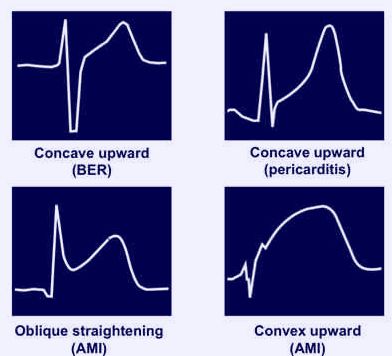
ECG changes in Pericarditis
Synonyms: Acute pericarditis, Viral pericarditis, Infectious pericarditis Definition: Diffuse inflammation of the pericardial lining surrounding the heart and characterized by sharp pleuritic, retrosternal chest pain worsened with recumbency and relieved by leaning forwards. Causes of Pericarditis: a. Infectious: Viral: Coxsackievirus, Echovirus, Ebstein-Barr virus, Influenza, HIV, Mumps virus Bacterial: Staphylococcus, Hemophilus,…
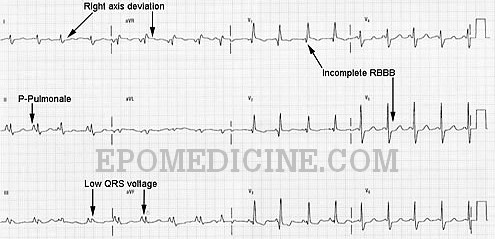
ECG changes in Chronic Obstructive Pulmonary Disease (COPD)
Synonyms: Emphysema, Chronic bronchitis, Chronic Obstructive Lung Disease (COLD), Chronic Obstructive Airway Disease (COAD), Smoker’s lung Definition: COPD is a lung disease characterized by airflow limitation (FEV1/FVC ratio of less than 70%) that is not fully reversible (FEV1 increase of 200 ml and 12% improvement above baseline FEV1 following administration of…
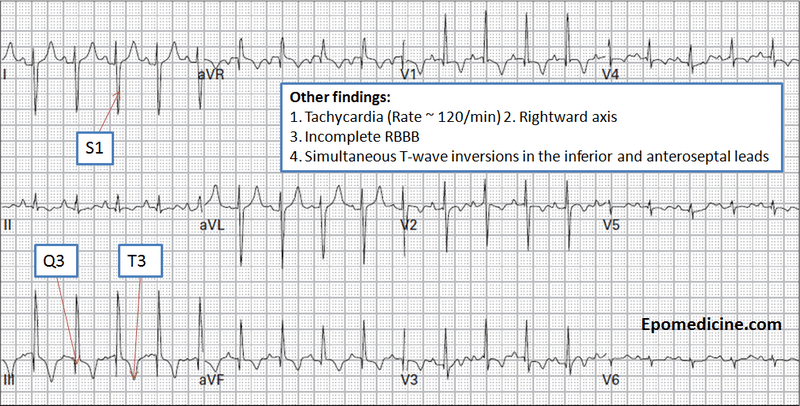
ECG changes in Pulmonary embolism
Synonyms: Pulmonary artery embolism, Pulmonary embolus, PE Definition: A pulmonary embolus (PE) is a blood clot that embolizes to the lungs. When a clot from peripheral veins, the right atrium or the right ventricle travels into the pulmonary circuit, it effectively blocks forward blood through a portion of the lung…
